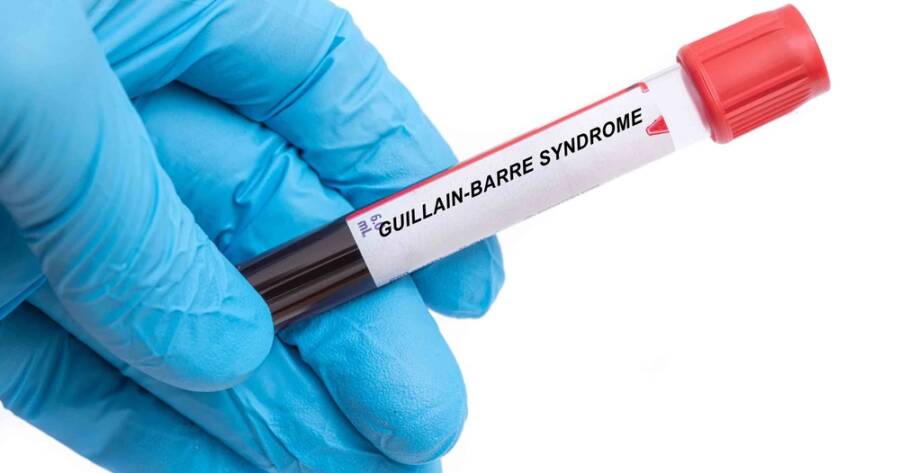Guillain-Barré syndrome (GBS) is a rare but serious condition that affects the nervous system, often leading to sudden weakness or paralysis. While the exact cause remains unclear, it can strike quickly, sometimes following an infection. Recognizing the early signs of GBS is crucial for timely treatment, which can greatly impact recovery. Understanding the symptoms and available treatments can help those affected navigate the challenges of this life-altering condition.
What is Guillain-Barré Syndrome?
Guillain-Barré syndrome is a rare neurological disorder in which the body’s immune system mistakenly attacks the nerves. This leads to inflammation and damage to the myelin sheath, the protective layer that surrounds the nerves. As a result, signals from the brain and spinal cord cannot reach the muscles, leading to weakness and paralysis.
Guillain-Barré syndrome can affect people of all ages, but it is most common in adults between the ages of 30 and 50. The exact cause of Guillain-Barré syndrome is unknown, but it is often preceded by an infection, such as the flu or a stomach virus. In some cases, Guillain-Barré syndrome may also be triggered by surgery or vaccination.
Guillain-Barré Syndrome Symptoms
The symptoms of Guillain-Barré syndrome can vary from person to person. They may include:
- Weakness and tingling in the limbs, which usually begins in the legs and spreads to the arms
- Difficulty walking or moving the arms
- Paralysis
- Difficulty breathing
- Blurred vision
- Drooping eyelids
- Difficulty speaking or swallowing
Causes and Risk Factors
While the exact cause of Guillain-Barré syndrome remains unclear, several factors have been identified that may increase the risk of developing the disorder. These include:
- Infections: Bacterial and viral infections, such as Campylobacter jejuni, influenza, Epstein-Barr virus, and Zika virus, have been associated with Guillain-Barré syndrome.
- Surgery: Some cases have been reported following surgical procedures.
- Vaccinations: Although rare, certain vaccinations have been linked to the onset of Guillain-Barré syndrome.
- Autoimmune factors: Individuals with other autoimmune diseases may have a higher risk.
The disorder begins with an abnormal immune response that mistakenly targets the nervous system, but why this occurs in some individuals and not others is still under investigation.
Diagnosis and Testing
Diagnosing Guillain-Barré syndrome involves a combination of clinical evaluation and diagnostic tests. A neurologist may begin with a thorough medical history and physical examination, focusing on the pattern of symptoms and their progression. Key diagnostic tests include:
- Lumbar puncture: This test involves extracting cerebrospinal fluid (CSF) to look for elevated protein levels, which are common in Guillain-Barré syndrome.
- Electromyography (EMG): This test measures the electrical activity of muscles and can detect abnormalities in nerve conduction.
- Nerve conduction studies (NCS): These studies assess how well electrical signals move through the peripheral nerves.
Early and accurate diagnosis is crucial for effective management and treatment.
Treatment Options for Guillain-Barré Syndrome
There is no cure for Guillain-Barré syndrome, but there are treatments that can help to improve symptoms and speed recovery. The main treatments for Guillain-Barré syndrome are plasma exchange and immunoglobulin therapy.
Plasma exchange is a procedure in which the liquid part of the blood (plasma) is removed and replaced with fresh plasma from a donor. This helps to remove the antibodies that are attacking the nerves.
Immunoglobulin therapy is a treatment in which high doses of antibodies are given to the patient. These antibodies help to block the immune system from attacking the nerves.
Other treatments for Guillain-Barré syndrome may include:
- Physical therapy
- Occupational therapy
- Speech therapy
- Pain medication
Learn More About Guillain-Barré Syndrome
If you or someone you know is experiencing symptoms of Guillain-Barré syndrome, it is important to seek medical attention immediately. Early diagnosis and treatment can help to improve the chances of a full recovery. Guillain-Barré syndrome is a serious and potentially life-threatening condition that requires prompt medical attention.
Understanding the symptoms, causes, and available treatments is crucial for early diagnosis and effective management. While there is no cure, advancements in medical treatment have significantly improved the prognosis for many patients. Awareness and education are key to ensuring better outcomes and support for those affected by this rare neurological disorder.
